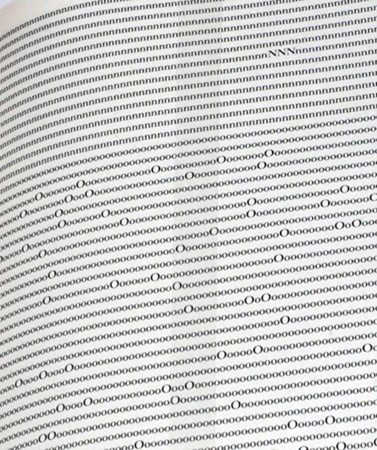America is home to a multiplicity of religions, Apostolic to Zoroastrian, but a fluidity of belief may be what singularly flavors the country’s spiritual expression. Americans tend to change religious affiliation early, and often. As the Pew Research Center puts it, the nation has a “competitive marketplace” for belief, in which different groups vie for membership, and the influence that brings.
Surveys suggest roughly half of American adults have changed religious affiliation at least once during their lives, with many sampling widely from the buffet before settling on any one selection, or none at all. That particular category—the none at all—deserves remark. It is the fastest-growing “religious tradition” in the country—alongside Islam and Mormonism, depending on which measures you believe. It is also, and consistently, positioned alongside specific forms of faith. Take, for instance, Obama’s 2009 inaugural address, in which he defined America as “a nation of Christians and Muslims, Jews and Hindus, and nonbelievers.” Or the demographers Kosmin, Mayer, and Kaysar in 2001: “Often lost amidst the mesmerizing tapestry of faith groups that comprise the American population is also a vast and growing population of those without faith…. These are the seculars, the unchurched, the people who profess no faith in any religion.”
In other words, even for those who convert, if you will, to agnosticism or atheism, what strikes in America is the continued tendency to define belief by its absence. There is a persistent staking out of religious identity in relation to—be it the Great Mystery, the divine, God and gods, or evolving fields of science. Or, to borrow from Ayana Mathis, whose essay is featured in this issue: “Faith is a perpetual participation in its object. It is a verb, not a noun.”

gold foil, 8 x 6 x 1.5 inches closed. © Tauba Auerbach. Courtesy Paula Cooper Gallery, New York
In this year’s fourth and final special issue, made possible by your generous support, Guernica explores religion’s imprint on America and finds that present articulations of belief run alongside reverberations of past faiths. While this collection only gestures toward the myriad approaches to spiritual life, it highlights the lasting expression of belief, be it through dogged observance, syncretism, resistance, or renewal.
In a personal examination of the “question, and the wound, of faith,” Mathis probes how her “sense of the divine—my belief in belief—could not be suppressed.” She considers whether the faith expressions of her childhood were a mark of shame and cultural inferiority, or possessed the liberatory potential of theology to make truth and break oppression. “I am devilled by the paradox of my religion,” she writes, “the narrow confines I fled as a child side by side with the transcendence of the 1960s.”
For Scott Cheshire, religion also invokes a parade of devils past. Raised as a Jehovah’s Witness, Cheshire recalls his childhood conception of a Manichaean world, good and evil strung in tension, along with America’s early preoccupations with evil lurking in the unknown and as yet unconquered wilds. “In the New World, darkness was realized literally on the frontier wilderness, on the shadowy edges of Puritan towns, in the forests, and on the dusky faces of Native Americans.” Though he left the church of his youth, becoming “what others referred to as a ‘humanist,’” Cheshire continued to encounter facets of the devil, housed within himself.
And Peter Manseau offers a portrait of conversion and syncretism in the desert of Palm Springs, where for over two decades Catholic-turned-Muslim artist Kenny Irwin Jr. has raised his holiday spectacular, Robolights, in celebration of Allah. “As goes Robolights, so goes the nation,” Manseau observes. “Maybe we’ll know that Muslims have been finally and fully accepted in the United States when their faith is no longer seen as a walled-off immigrant religion, but instead is subject to the same spin toward the bizarre that this country puts on every permutation of belief.”
Guernica’s Ann Neumann speaks with Katharine Hayhoe, scientist and evangelical, who believes that God’s mandate is to address climate change. “I’ve had people tell me that I must not be a Christian because I think climate change is real,” says Hayhoe. “But you know, there’s nothing in the Bible that says that. The sad truth is that our thought leaders—many of them in the conservative media and politics—are the ones telling us this isn’t real, and we are believing them.” Plus, Guernica’s Meara Sharma talks to Hare Krishna monk Gadadhara Pandit Dasa about food, celibacy, and reincarnation, and Brook Wilensky-Lanford interviews transgender Rabbi Becky Silverstein on rituals surrounding transitioning and the language of gender inclusion.
New fiction comes from John Benditt and Vanessa Hua, poetry by Layla Benitez-James and Robin Beth Schaer, and Guernica’s art editor Alex Zafiris interviews Chitra Ganesh about her new show at the Brooklyn Museum, Eyes of Time, in which she focuses on the Hindu goddess Kali. You’ll also find a Sufi healer in the Bronx, Jung’s concept of synchronicity as hijacked by the self-help movement, and more.
Features:
Scott Cheshire: Yo Soy el Diablo
Peter Manseau: Allah Guides to His Light Whomever He Wishes
Ayana Mathis: What Will Happen to All of That Beauty
Lucy McKeon: The Meaning of Coincidence
Humera Afridi: The Call of the Dervish
Interviews:
God’s Creation Is Running a Fever: Ann Neumann interviews Katharine Hayhoe
Whole Self Movement: Brook Wilensky-Lanford interviews Rabbi Becky Silverstein
What We Are Now, You Shall Be: Meara Sharma interviews Gadadhara Pandit Dasa
Art:
Of This Time: Alex Zafiris interviews Chitra Ganesh
Fiction:
Poetry:
Layla Benitez-James: God suspected my heart was a geode but he had to make sure
